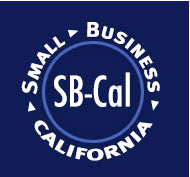You all received my email on the Retirement Benefit for Small Business employers and SB 1234.For those of you that responded I passed the comments on to the Senator. As a result he put together this outline per my request. This is your chance to affect public policy. Please review this and give me your comments. Also advise if you think Small Business California should support, oppose or take no position on this legislation.
Scott Hauge
President
Small Business California
===============================================
TO: Members of Small Business California
FROM: Senator Kevin de León
RE: Retirement Benefit for Small Business Employees—
SB1234 (De Leόn-Steinberg) California Retirement Savings Plan
DATE: March 1, 2012
If you are like most small businesses I know these days, just making ends meet is a challenge. And you witness first-hand the financial struggles endured by many of your employees. Just making payroll is a challenge, much less either contemplating offering benefits of any kind or, if you do, keeping up with the premiums.
It is not likely you can or have taken the time to comprehend that there is a looming retirement savings catastrophe for your employees on the horizon that, if not dealt with, will mean more seniors in the workforce, fewer jobs for younger workers and an over-reliance on public assistance creating skyrocketing state debts that no amount of entitlement reform or cuts will cure.
I know that offering an employer-sponsored retirement benefit for your employees is very difficult right now. For those of you already benefiting as the economy begins a very slow recovery, the costs and burdens associated with establishing a retirement benefit for your employees can be overwhelming.
That is why I authored Senate Bill 1234 (SB1234), the California Retirement Savings Act. It allows your employees to set aside a very small portion of their income pre-tax into a safe, reliable and portable retirement savings plan so they can have something to supplement their social security when they are seniors. The alternative is frightening to consider.
The benefit to you is that this comes with little hassle nor would you have fiduciary responsibility. All that would be required is to assist employees by merely permitting them to use your payroll-deduction system to make their regular fund contributions. And if you happen to be one of the fortunate businesses seeing better times, you are welcome to make a contribution if you choose all without the hassle or costs of setting up an individual plan.
Another significant benefit of this plan is that it comes at no risk to taxpayers. Not only does California’s Constitution prohibit such liability (Art. XVI, Sec. 1), but the measure will explicitly insure that financial liability rests exclusively with the private sector underwriter that guarantees the conservative rate of return.
Following is a description of how this program would roll out over the next few years. I encourage you to read and learn more. If you have questions, please don’t hesitate to call my office.
Implementation of SB 1234 would be a multi-step, multi-year process:
(1) The Board initially conducts a market analysis to assess participation rates, contribution levels, and the feasibility of investment vehicles.
(2) Based on the market analysis, if the Board determines that the California Retirement Savings Plan would be self-sustaining, the Board notifies the Department of Finance that the program is viable and can move forward with implementation.
(3) The next step is developing the retirement investment products—the Board would contract with CalPERS/private vendor(s) to manage the fund, handle the day-to-day administration of the fund, and secure private underwriting to guarantee the rate of return.
(4) Once the Board opens the program for enrollment, participation would be phased-in for the employees of employers that do not offer an employer-sponsored plan (such as a 401(k)):
Within 3 months: employers with 100 or more employees;
Within 6 months: employers with 50 or more employees;
Within 9 months: employers with 5 or more employees;
Employees with less than 5 employees (and those self-employed) can voluntarily enroll into the program at any time.
(5) Employers would never be obligated to create their own retirement plan. If employers decide not to offer their own plan, their only obligation would be the ministerial duty of allowing their employees to use their payroll system for automatic deductions to the California Retirement Savings Plan. (Note: the mechanics of this piece are a work in
progress, we will be talking to EDD in the coming weeks to see if the department can facilitate the processing of employee contributions similar to other line-item deductions.)
(6) Employers would be able to make voluntary contributions on their employees’ behalf or match their employees’ contributions.
(7) Employers would retain the option at all times to set up a 401(k) or other type of retirement plan instead of allowing their employees to use their payroll system to access the California Retirement Savings Plan.
(8) Unlike an employer-sponsored plan, employers that make the plan available so their employees can enter into the California Retirement Savings Plan would not bear any fiduciary responsibility and there would be no burdensome reporting requirements.
(9) If an employer already offers or newly opens an employer-sponsored retirement plan, they can voluntarily participate in the California Retirement Savings Plan (as a supplement to their own plan).
(10) If an employee works for an employer that already offers an employer-sponsored plan, that employee can voluntarily open their own account with the California Retirement Savings Plan. However, the employer would not be obligated to allow that employee to utilize their payroll system for automatic deductions.


